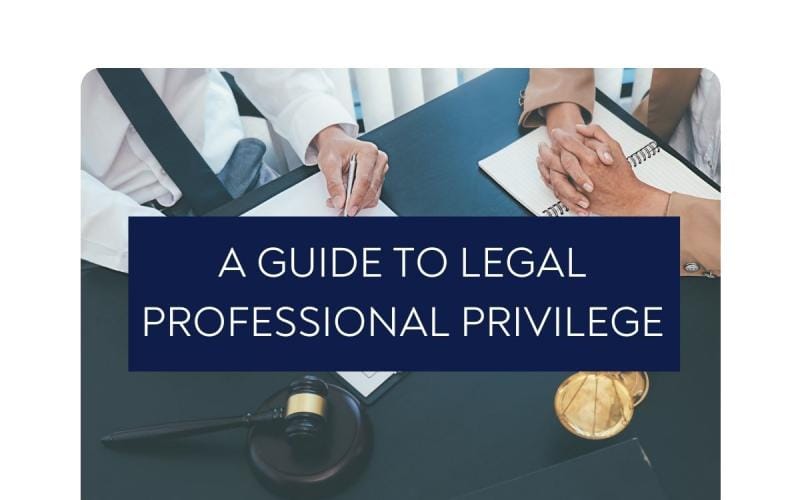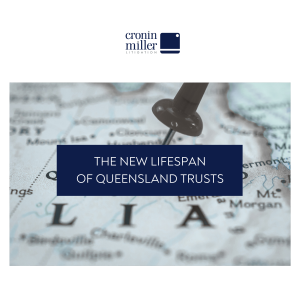It is a common misconception in legal practice that all communications passing between a lawyer and their client is subject to legal professional privilege and therefore, not required to be disclosed or produced. However, this is not always the case. The below provides a guide on what legal professional privilege is when it applies, and the circumstances where it is waived (whether intentionally or not).
Types of Privilege
The two most common types of legal professional privilege include:
- Advice Privilege: this applies to any communications between a lawyer and client which were made for the dominant purpose of the lawyer providing (and the client receiving) legal advice; and
- Litigation Privilege: which applies to communications between a lawyer and client, or a third party, which were made for the dominant purpose of use in existing or anticipated legal proceedings.
The dominant purpose for which the document or communication was made is the most significant reason for the creation of the document or communication.
In addition to the above two ‘common’ types, the following types of privilege are relevant and present themselves in legal practice more often than you would think and therefore, should not be ignored.
Interest Privilege
Common interest privilege applies where there are:
- voluntary but confidential disclosure of communications;
- for the dominant purpose of legal advice or use in litigation; and
- to a third party who has a common interest in the subject matter of the legal advice or litigation and in the confidentiality of the relevant communication or document.
For example, this privilege may apply to partners or companies in the same group who have a common interest in defending or pursuing anticipated or actual litigation, whether or not those parties have the same legal representation. Disclosure of those communications in this instance does not waive privilege.
Joint Privilege
Joint privilege applies to communications made by a lawyer who is jointly retained by multiple clients for a common purpose. Joint privilege is similar to common interest privilege and can also only be waived with the agreement of all privilege holders.
Why is ‘privilege’ important?
The rationale behind legal professional privilege is that clients are more willing to make use of the services of legal practitioners if they are assured that their communications will remain confidential. A person should be entitled to seek and obtain legal advice, and legal assistance for the purposes of actual or anticipated litigation, without the apprehension of those communications, subsequently being disclosed.
How do you lose privilege?
There are two primary ways in which privilege attached to a communication may be ‘lost’. By express, or implied waiver. The latter can occur in a number of different ways, so it is useful to be mindful of each of those so as to ensure inadvertent waiver doesn’t eventuate.
Express Waiver
One of the easiest ways to waive privilege is when a party deliberately and intentionally discloses the protected material. In the circumstances, the disclosure of the material is inconsistent with the claim for privilege and maintenance of confidentiality. This is known as ‘express waiver’.
Implied Waiver
Disclosure Waiver
On the other hand, privilege can also be lost because of an ‘implied waiver’. For example, it is sufficient to constitute a waiver if the gist, substance or conclusion of legal advice is disclosed in a pleading or evidence (even if the actual document or communication has not been given).
Issue Waiver
Further, where motive, purpose or state of mind has been put into issue by a pleading or evidence, risk of waiver can emerge. For example, if a state of mind has been positively pleaded in circumstances where legal advice given would be relevant to the formation of that state of mind.
However, determining whether a party has, in effect, put its state of mind in issue in a way that can be taken to waive privilege over legal advice that might have affected that state of mind, can be a difficult exercise and often invites a closer reading of the working of the pleadings in question.
Associated Material Waiver
Associated material waiver is a waiver of material relevant to the same issue or subject matter as a disclosed document. Expert reports are a good example of associated material waiver.
Expert reports are often prepared for the dominant purpose and use in actual or anticipated legal proceedings. However, once filed and served, there is ordinarily an implied waiver of privilege in respect of any documents relied upon by the expert which are required to understand the report, such as instructions and documents provided to the expert.
Key Takeaway
The obvious benefit of legal professional privilege is that documents or communications passing between a client and lawyer which are subject to privilege provides the client (and lawyer) protection from this information being exposed to a third party.
However, it is important to remember that there are many situations that may arise where a claim for legal professional privilege over a document or communication can be lost, whether intentionally or not. Accordingly, knowing what circumstances may waive privilege provides a further assurance that those communications intended to stay privileged, remain privileged.



